AgentOps helps developers see inside their AI agents by logging every prompt, action, and cost. This review explains how it works, its features, setup, and why it’s becoming the go-to debugging tool for AI developers.
Affiliate Business Hub (ABH) – Vick Strizheus’ All-in-One Affiliate Business System

Affiliate Business Hub (ABH) is a comprehensive affiliate marketing platform created by industry veteran Vick Strizheus, best known as the founder of the Four Percent Group. ABH (also referred to as the Affiliate Business System) is designed to help beginners launch a profitable affiliate business in as little as 7 days.
This in-depth article will provide a thorough overview of ABH – its creator, features, tools, training modules, and how it empowers newcomers – and then compare it to other major affiliate marketing platforms.
We’ll stack ABH against Wealthy Affiliate (a long-standing training community), Legendary Marketer (a popular high-ticket training program), and ClickBank’s official training (formerly ClickBank University, now Spark by ClickBank). We will use structured comparisons – including feature and pricing tables, pros and cons lists, and even visual charts – to illustrate key differences.
You’ll also find success stories and user feedback from real users on each platform. By the end, it should be clear why ABH stands out as a superior choice for aspiring affiliate marketers, especially those seeking a supportive, fast-track system to success.
What is the Affiliate Business Hub (ABH)?
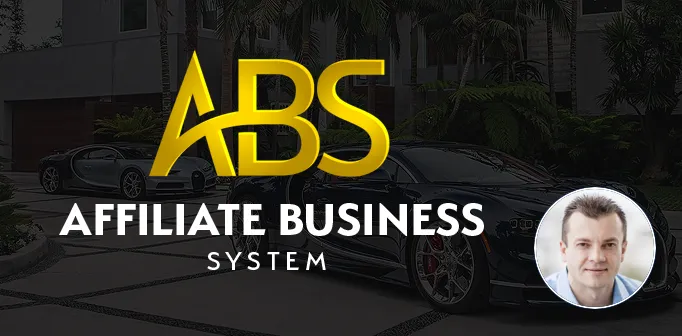
Affiliate Business Hub (ABH) is Vick Strizheus’s flagship affiliate marketing system (originally launched as the Affiliate Business System or ABS). Vick Strizheus, a well-known digital entrepreneur with over a decade of experience, developed ABH as a “business-in-a-box” solution for people who want to build a sustainable online income through affiliate marketing. Vick’s reputation as a mentor is strong – he’s guided thousands of students through programs like Four Percent – and ABH represents his latest, most comprehensive system
At its core, ABH is about building a real online business asset (an “affiliate hub”) rather than just running one-off promotions. Strizheus observed that many affiliate newbies jump from product to product, chasing trends and short-term gains
This often leads to burnout and lacks long-term brand building. ABH flips that script by teaching you to create a centralized affiliate website (your “hub”) that can promote multiple offers over time while establishing your own brand authority.
In Vick’s words, it’s about “constructing a destination — a massive, unrivaled resource that outperforms standard affiliate businesses online”.
Unlike many training courses, ABH is not just theory; it’s a practical, step-by-step implementation program where you literally build your affiliate business alongside Vick’s video guidance
Key Features and Tools of ABH

- 7-Day Step-by-Step Training Framework: ABH is structured as a seven-day guided build-out. Each day, you follow along with Vick’s over-the-shoulder video tutorials to set up a new component of your affiliate business. By the end of Day 7, you should have a fully functional affiliate marketing “hub” ready to start driving traffic and generating commissions. This rapid build timeline is a standout feature – “start your business in just 7 days” is the bold promise, backed by a double-your-money-back guarantee if you don’t achieve it (more on this guarantee shortly).
- “Done-For-You” Affiliate Hub (Websites & Funnels): One of ABH’s biggest advantages for beginners is its done-for-you infrastructure. Upon joining, you get access to 12 ready-made sales funnels and a pre-built affiliate website (your hub). Think of these as 12 “stores” or income streams, already set up with products to promote – “like having 12 different stores all working for you!” as one review put it. These funnels represent hand-picked, high-converting offers that Vick has vetted.
Instead of struggling to build landing pages or write sales copy from scratch, you can deploy the provided funnels and pages with minimal customization. ABH gives you all the technical tools in one place – hosting, website builder, funnel builder, etc. – so you don’t need to purchase a dozen separate software tools. Even pre-written email sequences (“emails that help sell for you”) are included to follow up with your leads on autopilot.
- Integrated Tools & Tech: ABH’s platform comes with a suite of integrated tools essential for affiliate marketing success. For example, you get built-in autoresponder integration (to manage email marketing), tracking tools, and more. In fact, the Four Percent dashboard (upon which ABH is built) has a “Tools & Resources” section covering everything from AI copywriting and email verification to traffic and web hosting – many of these resources are either included or recommended within ABH.
The idea is that everything you need to build and run your affiliate business is either provided or precisely shown to you, reducing the tech overwhelm for newcomers. As one overview stated, “ABS gives you all the tools you need. It’s like getting a complete toolbox instead of just one hammer – you get websites, emails, and even ads all ready to go!”.
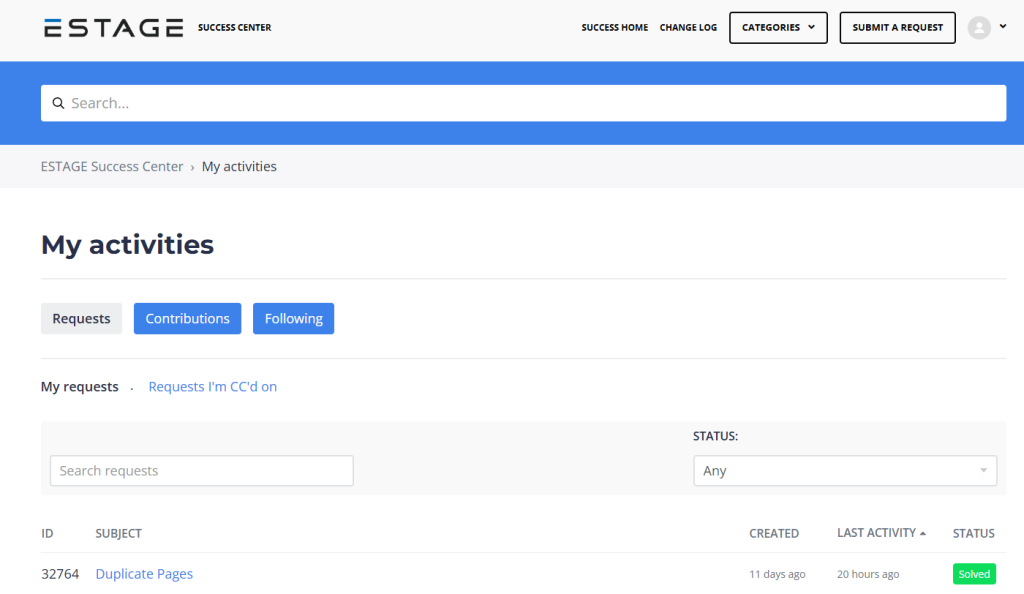
- Community and Live Support: Joining ABH also means joining a community of like-minded entrepreneurs. Vick emphasizes that success in affiliate marketing doesn’t happen in isolation – ABH includes a built-in community hub where members can interact, ask questions, and share wins. There is live chat support, email assistance, and dedicated group support, so you’re “not walking the path alone”.
New in the latest version of ABH is a special “Community” feature that functions almost like your own mastermind group or fan club, where you can network with peers and even future customers. This supportive environment helps newbies get quick answers and encouragement. Vick himself is very present as a mentor in the community, doing live Q&A and guidance sessions – essentially “holding your hand every step of the way,” which is a huge confidence booster for those new to online business.
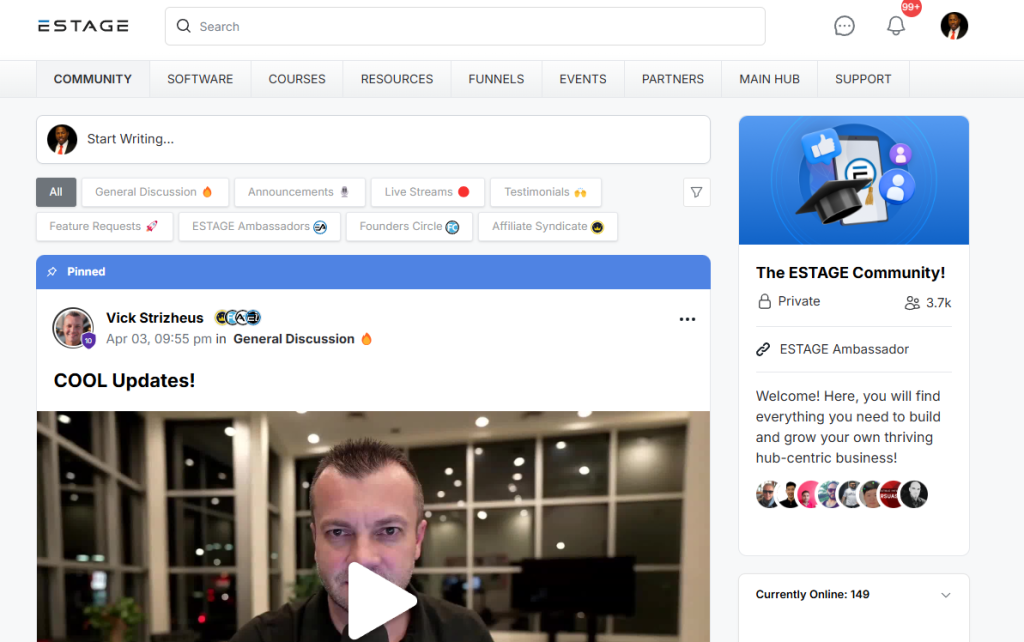
- Over-the-Shoulder Video Training: While ABH provides done-for-you components, it’s also an educational program. Vick’s personal coaching style comes through in the training videos. He literally builds an affiliate hub in front of you on video – you watch, pause, implement on your own hub, and continue, step by step. This method demystifies the process because you see exactly how each task is done (from buying a domain, setting up your site, integrating an email autoresponder, launching funnels, to driving traffic).
The strategies taught are not generic textbook stuff; they are “proven strategies” that Vick himself and other successful affiliates have used, so you’re learning what actually works in the real world. Additionally, ABH grants access to exclusive insights – sort of “behind-the-scenes” secrets that you won’t find in public YouTube videos or basic courses. This includes traffic strategies, list-building tactics, and conversion hacks that give ABH members an edge.

- Strong Emphasis on Branding & Longevity: Unlike many courses that only focus on quick wins, ABH’s philosophy is to help you build a long-term digital asset. You are encouraged to build an authority website (the “hub”) that can grow in value over time. By following ABH, you’re not just promoting one product; you’re creating a “digital empire” of your own that you can continue to monetize with various affiliate offers for years.
This focus on longevity means you are simultaneously building a brand and an audience that trusts you, rather than just chasing the flavor-of-the-month product. “It’s about constructing a standalone business that appreciates in value over the years,” as one review noted. For beginners, this is an important mindset shift – you’re building a real online business, not just a side hustle.
- Upgradable Affiliate Program: ABH not only teaches affiliate marketing, it has its own lucrative affiliate program for those who want to promote it. Members can choose to become affiliates of ABH itself and earn commissions for referring new customers. Notably, ABH offers generous commissions – 40% per sale by default (around $198 per sale at the $497 price point), and even an opportunity to earn 100% commissions as a “super affiliate”. That means an affiliate could earn the entire $497 on each referral, essentially doubling their revenue.
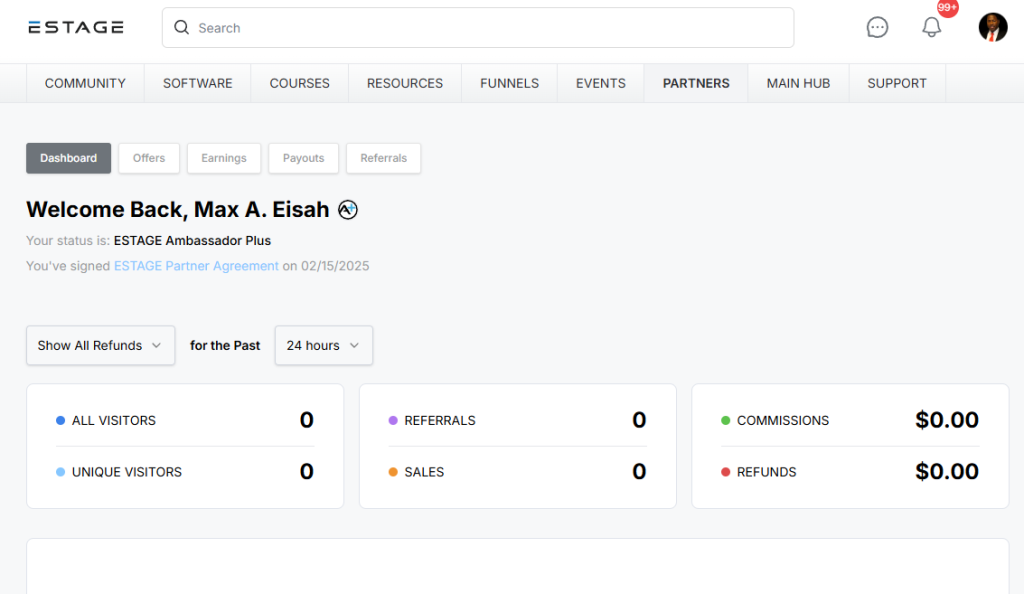
(The 100% commission tier likely requires achieving certain sales volume or an upgrade, turning you into what Vick calls a “Promotional Partner”.) This two-tier commission structure has attracted many experienced marketers to also promote ABH, since making a few sales can already recoup the program cost. It’s a nice bonus that on top of learning how to do affiliate marketing in any niche, you have the option to earn by spreading ABH itself – essentially getting paid to share a program you’re using and believe in.
How ABH Helps Beginners Succeed
Putting it all together, ABH is tailor-made for beginners in a few key ways:
- Ease of Setup & Speed: The most obvious benefit is speed. ABH is built around getting you to take action and launch, not just sit and learn theory. In fact, the system is so confident in its 7-day launch plan that it has a “7-Day Money-Back Promise” – if you don’t have your business up and running in 7 days, you get double your money back. This guarantee shows how much they emphasize implementation. For a beginner, the hardest part is often just getting all the pieces in place; ABH accelerates that setup so you see progress within your first week.

Many ABH users report making their first affiliate commission within days of launching – for example, one testimonial from Sarah K. says “I made my first sale in just 3 days!”. Early “wins” like that are incredibly motivating for someone new. By contrast, more traditional approaches (like blogging with SEO) might take months to earn a first dollar. ABH’s done-for-you funnels and clear daily tasks mean even non-techy beginners can execute quickly and correctly.
- All-in-One Guidance: Beginners often feel overwhelmed by the fragmentation of affiliate marketing – you need hosting from one place, a funnel tool from another, an email tool elsewhere, then figure out how to integrate it all and learn marketing on top of that. ABH eliminates the overwhelm by providing a one-stop hub for training, tools, and support. Instead of piecing together a dozen services, you have a unified system.
Vick’s step-by-step tutorials act like a paint-by-numbers blueprint: you always know the next step to take, which removes guesswork and “analysis paralysis.” As one reviewer described, “with ABS, you can send people straight to your special link. Easy peasy – no confusing funnels to build from scratch”. By simplifying the tech and funnel side, ABH lets beginners focus on learning the marketing side (like how to get traffic and leads), which Vick also teaches in the program.

- Community & Mentor Support: Starting an online business alone can be daunting. ABH’s community ensures newbies are never stuck for long. If you hit a snag on Day 3 setting up your email autoresponder, for instance, you can hop into the live chat or community forum and likely get help from a mentor or peer within minutes. This real-time support greatly increases the likelihood of success for beginners – it keeps momentum going. Moreover, being surrounded by others on the same journey fosters accountability.
Members celebrate each other’s milestones (like launching their site or getting that first sale), which inspires everyone. The “Community of Success” that ABH advertises is evident in the myriad testimonials from members who rave about the support system. This communal aspect can make the difference between someone giving up versus pushing through challenges.
- Proven System with Track Record: ABH isn’t an untested theory – it’s built on strategies that have already created “countless digital success stories”. Vick often showcases ordinary people who followed the system and achieved life-changing results. For example, some users have reported quitting their 9–5 jobs after finding success with the ABH model, as one testimonial from Mike T. attests: “ABS changed my life. I quit my job and now work from home!”.
Knowing that others just like you have succeeded with ABH builds a beginner’s confidence in the process. It’s not abstract or “too good to be true” – you can see it working via real case studies. (In the next section on success stories, we’ll highlight a few specific ABH user results and feedback.)
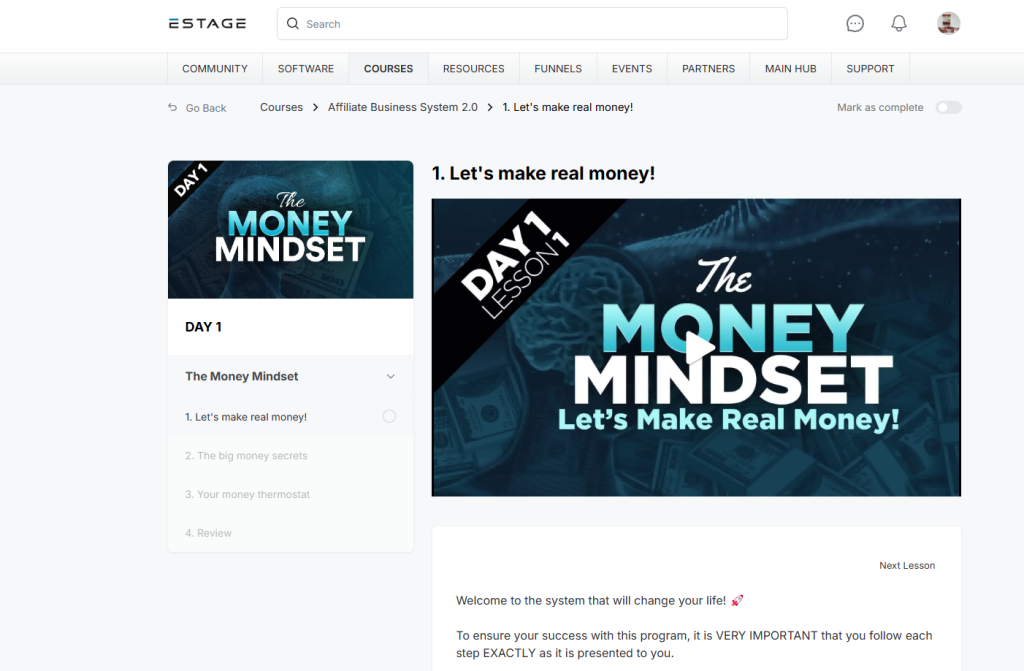
- Professional, Updated Training: Because ABH is Vick’s flagship, he keeps the content updated with current best practices. Affiliate marketing trends can change (new traffic sources, algorithm updates, etc.), and having an actively maintained program means beginners get current info. Vick and his team regularly refine the system, adding new features (like the community module) and training updates. In contrast, some older courses become stale, teaching methods from 5+ years ago. With ABH, you’re learning cutting-edge techniques that are working right now in 2024-2025, giving you a better shot at success.
In summary, ABH provides everything a beginner needs – knowledge, tools, and support – in one package. Now, let’s examine how ABH compares to other popular affiliate marketing platforms. Each of these alternatives offers its own approach to helping beginners make money online. We’ll see where ABH shines and where each platform has its strengths and weaknesses.
Comparing ABH to Other Affiliate Marketing Platforms
There are dozens of affiliate marketing courses and platforms out there, but a few stand out as industry leaders. Here we’ll compare Affiliate Business Hub (ABH) with three other major platforms:
- Wealthy Affiliate (WA): A well-established affiliate marketing training community (founded in 2005) known for its focus on building niche websites and its large support community.
- Legendary Marketer (LM): A popular training program (founded by David Sharpe) that offers a mix of low-ticket and high-ticket courses, including the famous “15-Day Challenge,” and focuses on high-profit affiliate strategies (including promoting high-ticket offers).
- ClickBank Spark (formerly ClickBank University – CBU): The official training suite from ClickBank, teaching users how to succeed specifically with the ClickBank marketplace, including both affiliate and product-creation tracks.
Each of these programs takes a different approach to affiliate marketing. We will compare them across key factors like training content, features, tools, community, pricing, and success rates. Below is an overview table highlighting the main features and pricing of ABH vs. Wealthy Affiliate vs. Legendary Marketer vs. ClickBank’s Spark:
Feature & Pricing Comparison Table
| Aspect | Affiliate Business Hub (ABH) | Wealthy Affiliate (WA) | Legendary Marketer (LM) | ClickBank “Spark” (CBU) |
|---|---|---|---|---|
| Founders / Creators | Vick Strizheus (Four Percent founder, 10+ yrs in industry) | Kyle Loudoun & Carson Lim (founded 2005) | David “Dave” Sharpe (CEO, co-founded Empower Network) | ClickBank (corporate product by ClickBank team) |
| Training Format | 7-Day step-by-step video build challenge – over-the-shoulder, implementation-focused. Ongoing updates. | Self-paced courses (1000+ lessons) on building affiliate niche websites; plus weekly live webinars and member-created training. | 15-Day Challenge ($7) for fundamentals; then optional advanced Blueprints courses & live coaching. Mix of video lessons, quizzes, and assignments. | Video course library (~70+ videos) covering ClickBank affiliate basics and creating products. Structured as multiple short courses. |
| Core Focus & Strategy | Building a branded affiliate hub site that promotes multiple offers (long-term asset). Emphasis on funnels + email marketing + multi-stream income. Done-for-you elements to accelerate success. | Building niche content websites (usually blogs) to rank on search engines and promote products (primarily via SEO). Emphasis on writing content, keyword research, and organic traffic. | Learning digital marketing skills (affiliate marketing, funnel building, paid ads, etc.) that can be applied to promote LM itself or any online business. Strong emphasis on high-ticket affiliate sales and personal branding. | Learning how to make money with ClickBank – both as an affiliate and as a product vendor. Focuses on understanding the ClickBank platform, finding products, and basic traffic methods. More general affiliate knowledge (often entry-level concepts). |
| Done-For-You Components | Yes: Comes with 12 pre-built funnels and a ready-made affiliate “hub” website template. Pre-written email sequences and some ad templates included. Essentially a business-in-a-box (just add traffic). | No: Provides tools and guidance, but you must build your own site from scratch (with their website builder) and create your own content. No pre-made funnels or campaigns – you create everything guided by training. | Partial: Funnels/templates are provided for promoting LM itself (affiliates get copy/paste funnels and scripts). For outside niches, you learn strategies but must implement yourself. Not a complete done-for-you business, though they do hand-hold setup of basic funnels in the 15-day challenge. | No: Spark is primarily training content. It does not provide done-for-you sites or funnels. (It may suggest tools, and ClickBank has a site builder upsell historically, but essentially you implement what you learn on your own website or channels.) |
| Tools & Platforms Included | Yes: All-in-one platform – website hosting, funnel builder, email marketing system integration, tracking, etc., are integrated. You don’t need external tools for the core business setup. | Yes: WA includes web hosting for up to 10 websites (Premium) or 50 (Premium+), a custom WordPress website builder, Jaaxy keyword research tool, content writing tools (incl. AI writing assistant), and an internal SEO analysis tool. All tools are in-platform. | Partial: The core product is training. LM doesn’t include web hosting or a site builder – you’re expected to use third-party tools (e.g., ClickFunnels, AWeber) which they may recommend. However, as an LM affiliate you get access to their affiliate funnels and a marketing CRM to track leads. No proprietary site builder or keyword tool is provided by LM itself. | Minimal: Spark provides a training platform with a members forum (community) and lessons. It doesn’t offer hosting or funnel software – for implementation, users must use their own tools. (ClickBank University 2.0 had a limited “website builder” for an extra fee; Spark’s focus is more on knowledge than tools.) |
| Community & Support | Yes – Very active: Private community forum and live chat support. Direct access to mentors (including Vick via webinars/chat). Emphasis on peer support and networking. Also offers email support and possibly live coaching calls. | Yes – Very large: WA has an extensive community (1.4+ million members). Features include 24/7 live chat, member blogs, Q&A sections, and the ability to get help from other experienced members. Community is often praised as supportive and newbie-friendly. The founders (Kyle/Carson) are active and weekly live training sessions include Q&A. | Yes: LM offers a private Facebook group for members and hosts live webinars (“Wake Up Legendary” daily calls, etc.) During the 15-day challenge, each student is assigned a business advisor (coach) they can speak with one-on-one. The community is slightly smaller and typically revolves around the FB group and live events. | Yes, but smaller: Spark has an online community component (discussion forums) for students to interact. Being newer, the community is not as expansive as WA’s. Support is available through ClickBank’s channels – likely email or chat support for the course. No live coaching component is advertised with Spark. |
| Notable Training Modules | Day 1–7 Curriculum: For example, Day 1: Laying foundations (choosing niche, domain, setting up site); Day 2: Integrating multiple income streams (setting up your 12 funnels); Day 3: Setting up email marketing; Day 4: Driving initial traffic; Day 5: Scaling strategies, etc. (Exact day-by-day details vary). Overall, ABH covers niche selection, funnel setup, email list building, traffic generation (free & paid), and long-term scaling in a very action-oriented sequence. | Core Training: Online Entrepreneur Certification (OEC) – 5 Levels (50 lessons) focused on choosing a niche and building a niche WordPress site with SEO and content marketing. Affiliate Bootcamp: 7 Phases (70 lessons) focused on promoting WA itself as an affiliate (make-money niche). Plus: Weekly live webinars on various topics (recorded archive of 400+ webinars), user-generated training on specific skills, and new Classrooms on topics like PPC, social media, etc. | 15-Day Business Builder Challenge: covers fundamentals like online business mindset, building a sales funnel, emailing, driving traffic (with an emphasis on paid ads and high-ticket sales) in 15 bite-sized lessons + assignments. Includes a 1-on-1 call to plan your business. Business Blueprints: Four advanced courses (Affiliate Marketing, Digital Products, Coaching/Consulting, and Events) – each is a deep-dive with video series and sometimes live workshops (these are high-ticket ~$2,500 each). Weekly live training: via the Marketer’s Club ($30/mo) which provides new webinars and interviews with experts every week. | Spark Curriculum: Multiple courses such as “Affiliate Basics”, “Copywriting”, “Instagram Traffic”, etc. For instance, Spark Affiliate Foundations covers picking a niche, finding ClickBank offers, creating your first affiliate funnel/link. There are also modules for aspiring product creators on making your own digital product to sell on ClickBank. The training is mostly beginner level – enough to get your feet wet on ClickBank. |
| Pricing Model | $497 one-time (current promotional price) for lifetime access. Note: It was previously advertised at $4,997, making $497 a significant discount. No monthly fees for core platform. (Optional upsells: e.g., higher commission license or additional traffic courses might cost extra, but the main system is $497 all-in.) | Freemium + Subscription: Starter Membership is $0 (free trial, limited access). Premium Membership is $49/month (or ~$495/year) for full training and tools. Premium Plus+ is $99/month (or ~$697/year) for enhanced features (more classes, advanced tools, more websites). No upsells beyond these tiers – all core training included in Premium. | Value Ladder Pricing: Very low entry cost then optional expensive upsells. Entry: $7 for the 15-Day Challenge (one-time). Ongoing Marketer’s Club $30/month (optional). Several mid-tier courses $1–$100 (e.g., eBooks at $1.99, Copywriters Playbook $1). High-Ticket: Business Blueprints $2,500 each (up to ~$5k+ for all). Occasional live masterminds or coaching packages can run into $5,000–$15,000 range for top-tier. Essentially, you can spend anywhere from under $10 up to tens of thousands on LM products, depending on how deep you go. | Monthly Subscription: Spark costs $39 per month for access to the platform and courses. (Previously, ClickBank University was ~$47/mo + upsells; Spark has simplified to a single subscription). You can cancel anytime. Occasionally, ClickBank might offer a free basic course or a trial, but full access is paid. No high-ticket upsells in Spark – the pricing is straightforward subscription. |
| Refund Policy / Guarantees | Double-your-money-back Guarantee: If you follow the program and don’t have your affiliate hub launched in 7 days, ABH promises to refund 200% of your purchase. This is unusually generous. It shows confidence in the quick-start aspect. (Standard satisfaction refunds may also apply – e.g., a 30-day refund policy – but the standout is the 7-day launch guarantee.) | No Official Refunds for subscription: Wealthy Affiliate generally does not offer refunds on subscription payments. Since they have a free starter, they expect you to try before paying. If you cancel Premium, you simply won’t be billed further. (Annual plans might prorate a refund if canceled early, but officially it’s safer to assume no refund once paid, as per some member reports.) | Standard Refunds on low-ticket; conditional on high-ticket: The $7 Challenge has a 30-day refund policy (per their terms). The high-ticket Blueprint courses have a refund period (often 30 days) only if you have not accessed a certain portion of the content (to prevent abusing the system). Once you attend a live workshop or access too much, refunds may be restricted. LM’s BBB rating suggests some mixed feedback on refunds (3.09/5 on BBB), but they do have a published refund policy on their site. | Standard 30-Day Refund: ClickBank’s products typically come with a 30-day money-back guarantee, and Spark is no exception. As it’s sold by ClickBank, refunds are handled through ClickBank customer service. Spark explicitly advertises a refund if you’re not satisfied within a certain period (likely 30 days, though one should check current terms). |
| Prospective Earnings & Success | Many newcomers see quick results: Testimonials of first commissions within days, and even significant income within weeks (individual results vary). ABH has over 22,000 five-star reviews on Trustpilot – indicating a large base of happy users achieving success. Because ABH encourages multiple income streams, some members report earnings from various affiliate programs plus ABH’s own affiliate program. (ABH’s affiliate program can pay up to $497 per sale, so a few sales a month already mean a solid income.) Overall, ABH is positioned to potentially get you to a few hundred per month relatively fast, scaling to full-time income with consistent effort and traffic growth. | Many WA members have built steady niche site incomes (usually slower growth). Success stories include people selling their affiliate websites for 5-figures or reaching job-replacing income after a year or more of work. WA’s focus on organic traffic means it often takes months to see significant income (e.g., 6–12 months to start seeing >$500/mo from a blog, in many cases). However, the skills learned are very transferable and you’re building assets. WA boasts an impressive 4.9/5.0 TrustPilot score from thousands of users, reflecting many satisfied customers – though earnings vary widely. Some newbies make nothing (especially if they give up early), while persistent members have reached 4, 5, even 6-figure annual incomes by following the training (often those who stick around 2+ years). | Legendary Marketer has produced notable success stories, especially among those who become affiliates of LM. It’s reported that a few hundred people have earned over $100,000 in commissions promoting LM, and a handful even crossed $1 million in commissions (Legendary’s “Diamond” rank). These are exceptional cases, usually experienced marketers. For the average learner, LM can impart valuable skills – e.g., one Medium blogger shared how he made his first $1,000 commission after a few months by following LM’s training and funnel system. The earning potential is high if you leverage high-ticket sales (either as an LM affiliate or in other niches like consulting using LM strategies). On Trustpilot, LM holds a solid 4.6/5 rating, indicating generally positive feedback, though some newbies struggle if they don’t invest in the advanced training. | Spark/CBU is more of a stepping stone; it’s geared toward beginners making their “first dollar” online. Many users learn the basics and might earn small commissions ($50-$100) by implementing simple campaigns. There aren’t as many publicly celebrated “big wins” from Spark alone – it’s often a gateway that leads users to either more advanced courses or to launching their own product. The training’s generic nature means serious marketers often outgrow Spark quickly. Still, as an official ClickBank product, it has credibility and plenty of newbies have used it to grasp fundamentals and go on to make consistent side income. (Trustpilot presence for Spark is limited, but ClickBank as a platform is trusted by millions.) |
Pros and Cons of Each Program
Next, to further clarify the differences, let’s break down the pros and cons of each program. Each has distinct advantages and some drawbacks. This will help highlight why ABH might be the superior choice for many beginners, while also giving credit to what competitors do well.
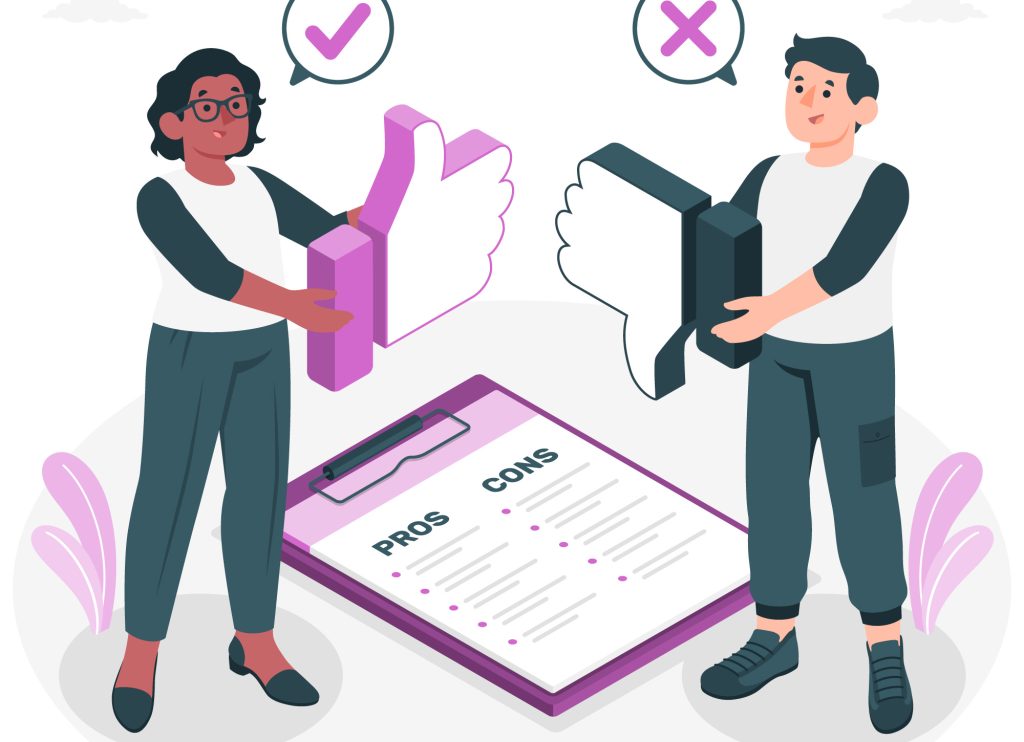
✅ Affiliate Business Hub (ABH) – Pros
- Fast Implementation & Results: ABH’s greatest pro is speed. By providing done-for-you funnels and a clear 7-day roadmap, it allows even total beginners to hit the ground running. Many users report achieving tangible results (like building their site or making first sales) within their first week. This quick win momentum is invaluable. You’re essentially earning while you learn, rather than learning for months before seeing a dime.
- All-in-One Convenience: Everything you need is under one roof – training, website, funnels, email, community. This all-inclusive approach spares beginners the headache of integrating multiple platforms. As one review put it, “with ABS, you get a complete toolbox… websites, emails, and even ads all ready to go!”. This not only saves time but money (the $497 price is far cheaper than buying a year of ClickFunnels, an autoresponder, a course, coaching, etc. separately).
- Personal Coaching by an Expert: Vick Strizheus’s “over-the-shoulder” style is a big plus. It’s like having a personal mentor guide you in building your business. Vick is a highly accomplished marketer, and you get to leverage his knowledge and proven strategies directly. He doesn’t just teach – he demonstrates and then has you replicate. This mentorship aspect sets ABH apart from more DIY courses.
- Multiple Income Streams = Higher Earning Potential: With ABH, you are not limited to one affiliate program. The 12 done-for-you funnels likely correspond to 12 different offers (often a mix of digital products, tools, and maybe ABH itself). This means one lead can end up generating several commissions for you (a concept often called the “stacked income” approach).
For example, a single customer who enters your hub might buy a web hosting service, a marketing tool, and a training course through your links, earning you 3 commissions. ABH structurally encourages this multi-stream monetization, which can significantly boost your overall ROI as an affiliate.
- Strong Community & Support: ABH’s community is described as very empowering. Newbies benefit from peer support and can get unstuck quickly via live chat or group help. Vick’s team provides responsive support, and ongoing updates mean the system stays current. Essentially, you’re never alone on the journey, which increases success rates.
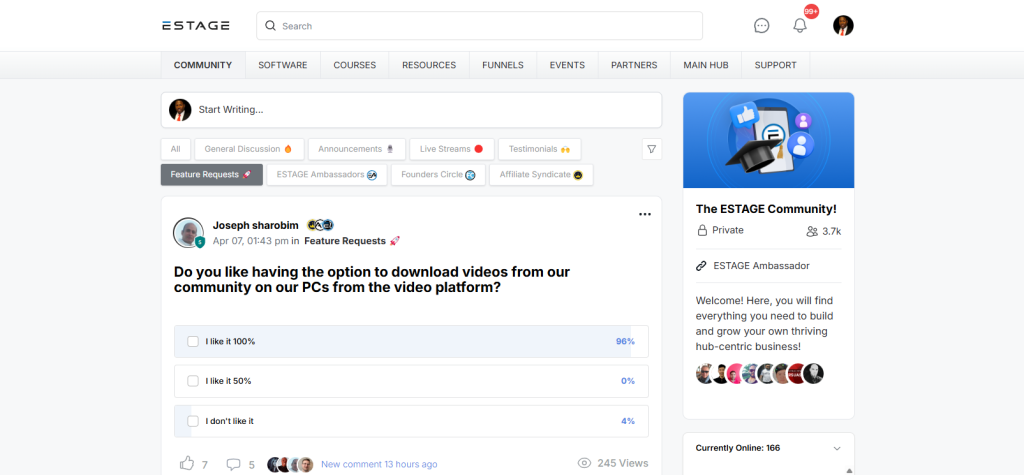
- Unique Guarantee & Trustworthiness: Offering a double money-back guarantee if you don’t launch in 7 days shows ABH stands behind its promise. It removes risk – if the system didn’t work, they’d be paying out 2x refunds (an unlikely scenario given the program’s efficacy). Also, ABH has amassed huge social proof – tens of thousands of 5-star reviews – which suggests a high satisfaction rate and legitimacy. Knowing that so many others found value in ABH gives new buyers confidence.
⚠️ Affiliate Business Hub (ABH) – Cons
- High Volume of Information: ABH is comprehensive, and for absolute beginners the “firehose” of content can feel overwhelming at first. Users are learning many new concepts (funnels, email marketing, etc.) in a short time. As one reviewer noted, there is a “mountain of information” that may overwhelm those new to the scene. However, this con is mitigated by how the training is broken into bite-sized daily modules – you tackle one chunk at a time, which helps manage overwhelm.
- Upfront Cost of $497: While ABH offers tremendous value (and was previously priced at $4,997), the $497 one-time fee could be a barrier for some beginners on a tight budget. There is no free trial (aside from perhaps a free webinar) and no monthly payment option for the core program. Compared to something like Wealthy Affiliate’s $0 starter or Legendary’s $7 intro, $497 upfront is a significant ask.
That said, serious entrepreneurs realize investing in a business is normal, and ABH’s cost is modest relative to a college course or starting a franchise. It’s also a one-time fee, not recurring. Still, for the most budget-constrained, this could be a con. (Tip: Occasionally, Vick might offer a split-pay or a scholarship discount via webinars, but as of now $497 is standard.)

- Primarily Focused on Certain Niches: ABH gives you a pre-built system that likely promotes specific curated offers (possibly in the make-money-online or marketing niche, given Vick’s background). If you wanted to do affiliate marketing in an unrelated niche (say, health & fitness products or pet supplies), ABH’s done-for-you funnels might not align with that. Wealthy Affiliate, by contrast, is niche-agnostic (trainings apply to any niche).
So ABH is ideal if you’re okay with promoting digital business/marketing products (often the most lucrative niche), but it’s less about, say, becoming an Amazon affiliate for physical products. This isn’t necessarily a downside – many beginners don’t have a niche in mind and are happy to promote proven offers that ABH supplies – but it’s worth noting that ABH provides a ready-made path (which might revolve around the tech/business niche). Those who insist on an off-path niche would have to adapt the system on their own.
- Dependence on One System: Building on the above, another minor con is potential reliance on ABH’s ecosystem. You are using their provided site template and tools. While you certainly own your business, if down the line you chose to stop using ABH’s platform, you’d need to migrate your assets (e.g., move your website to another host, etc.). Wealthy Affiliate and others also have this aspect (e.g., if you leave WA, you’d move your sites). It’s a typical consideration when using any platform. The risk is low, but skeptics might call it a con that you are somewhat “locked in” to the ABH system for as long as you want to fully leverage its benefits.
Overall, ABH’s cons are relatively minor compared to its strong pros, especially when the target user is a beginner who wants a faster route to success and is willing to invest in themselves.
✅ Wealthy Affiliate – Pros
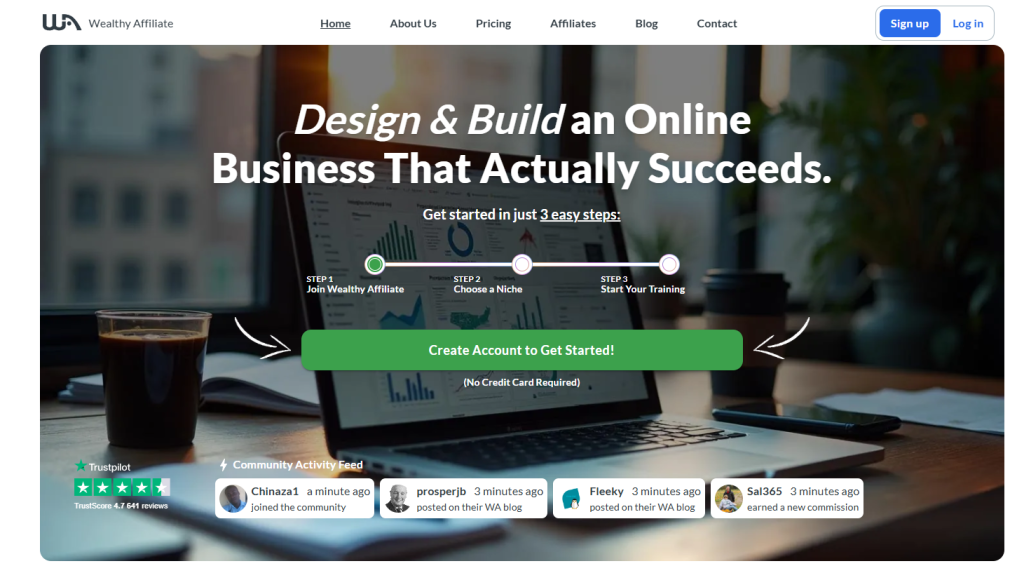
- Beginner-Friendly & No Cost to Start: Wealthy Affiliate (WA) is renowned for its accessibility. The free Starter membership allows anyone to dip their toes without spending a penny. You can actually start building a website and take the first 10 lessons for free, which is a fantastic way to test-drive the platform risk-free. This lowers the barrier to entry tremendously – perfect for skeptics or those with $0 budget. Even the Premium cost ($49/mo) is reasonable given everything included (web hosting, tools, etc.). For someone who prefers to “try before you buy,” WA is unbeatable.
- Comprehensive Training Library: WA offers hundreds of hours of training, from structured courses to weekly live webinars. The breadth of content is huge – covering SEO, content marketing, social media, email marketing, even some paid ads. If you want to learn how to build a niche affiliate site from the ground up, WA’s core training (Online Entrepreneur Certification) is very step-by-step and assumes no prior knowledge.
Plus, the weekly live classes mean the training evolves with industry changes (recent topics have included using AI for content, new SEO techniques, etc.). For knowledge-hungry individuals, WA can feel like an entire university degree in affiliate marketing. It’s not just one website or funnel – you learn a holistic skillset that can be applied to any niche or even other digital businesses.
- Robust Community Support: Perhaps WA’s biggest strength is its community of fellow members. With over 2 million members over the years (and thousands active daily), there’s always someone to help. The atmosphere is generally positive and helpful – newbies can ask any question and typically get multiple responses from more experienced members within hours or even minutes.
This peer support is in addition to direct help from the founders and moderators. WA’s community is frequently cited in user reviews as a highlight – many feel like they “joined a family” that celebrates each other’s successes. You can even network and collaborate with others. This sense of not being alone is a huge pro when learning a potentially confusing subject like online marketing.
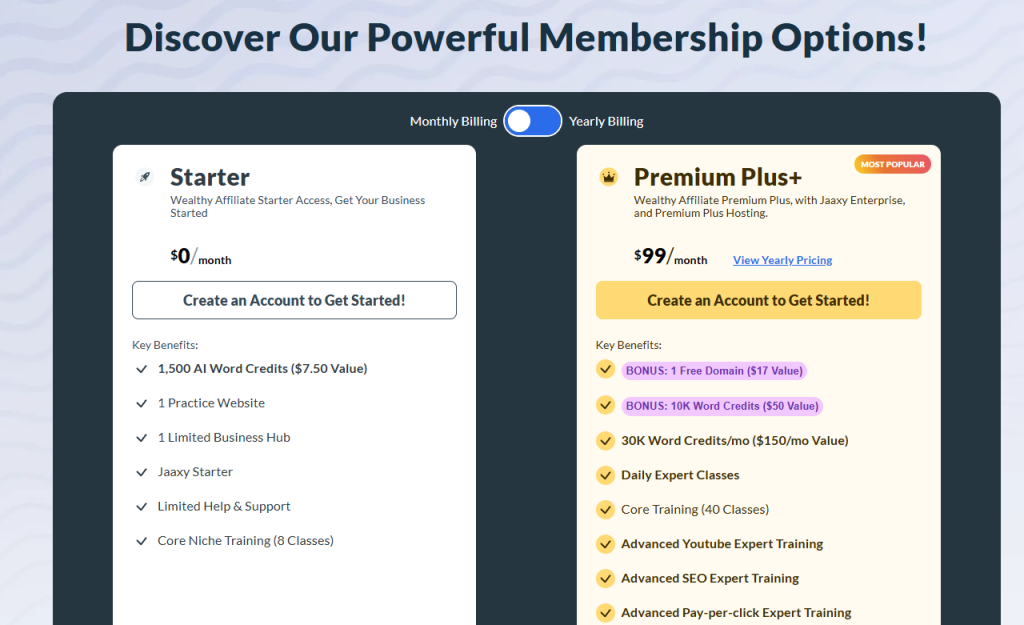
- All Essential Tools Included: WA’s platform includes web hosting (on Amazon AWS servers), a website builder (leveraging WordPress for flexibility), a keyword research tool (Jaaxy), an email autoresponder (recently added for Premium Plus members), and more. This means you do not need to purchase external hosting or a keyword tool, which saves money. The hosting is capable – allowing up to 10 sites means you can build multiple niche sites without extra cost. The integrated site management (SiteRubix) and content writing tool make it easy to publish content. Having these tools in one place, tailored for affiliate marketers, is a big convenience.
- Proven Success Stories (Long Term): Over its 18+ year history, Wealthy Affiliate has produced many success stories. There are WA members who started as newbies and later hit 4, 5, even 6 figures a month in affiliate income – some by promoting WA itself, others in completely unrelated niches. For example, one member (Dom W.) used WA training to build an affiliate business that grew to over $10K per month in three years, and he even started a company (HumanProofDesigns) that generated $680K in sales by 2016.
Another member (Stephanie) sold her first affiliate site for $28,000 after about a year of work. These stories show that WA’s model of consistent content creation and SEO can truly pay off. It’s inspiring for beginners to see that if they stick with it, they could potentially replicate that success. WA itself often shares these stories in their community to motivate newcomers.
- Ethical, No Hype Approach: WA generally markets itself in a down-to-earth way. They don’t promise overnight riches. In fact, they stress that building a business takes time and work (in contrast to some high-ticket programs’ hype). This honesty is a pro for those who are wary of get-rich-quick claims. The focus is on real skills and sustainable income. WA also has an A+ rating on BBB and a 4.9 Trustpilot score, indicating good business practices and customer satisfaction.
⚠️ Wealthy Affiliate – Cons
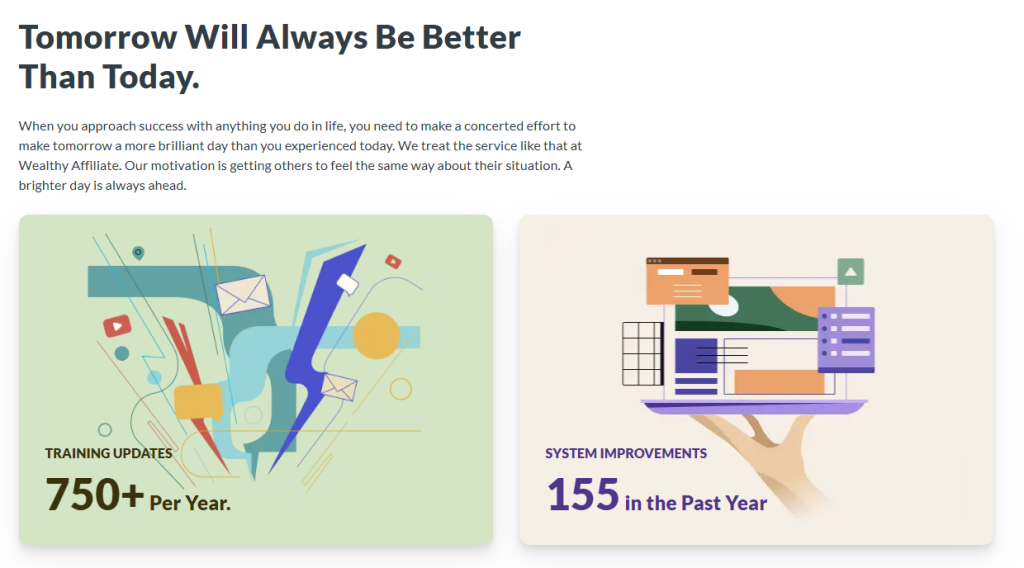
- Slow Path to Income: The flip side of WA’s organic marketing approach is that it typically takes quite a while to see significant results. Writing blog posts and ranking on Google is a marathon, not a sprint. Beginners who join WA must be prepared that it might take 3-6 months to get noticeable traffic, and 6-12+ months to earn substantial income, especially if starting from scratch and only putting in part-time hours.
This can be discouraging to those who need faster income or who expected quicker wins. In fact, many people join WA, do a few lessons, then give up because they find the work too slow or tedious before seeing success (this is a common issue noted on independent reviews). So, patience is a must – which not everyone has.
- Outdated or Incomplete Training in Spots: While WA updates its platform, some of its core training content has been called outdated or not advanced enough by experienced marketers. For example, critics say WA underemphasizes or barely covers modern tactics like link building, YouTube marketing, or advanced SEO techniques (focusing heavily on writing basic posts). Some training resources date back several years without refresh.
WA is primarily geared to beginners; once you reach intermediate level, you might find yourself searching for more advanced knowledge elsewhere. The community does create training on various topics, but quality varies. In summary, WA gives you a great foundation, but for cutting-edge tactics (or non-SEO strategies), it might not be the one-stop solution.
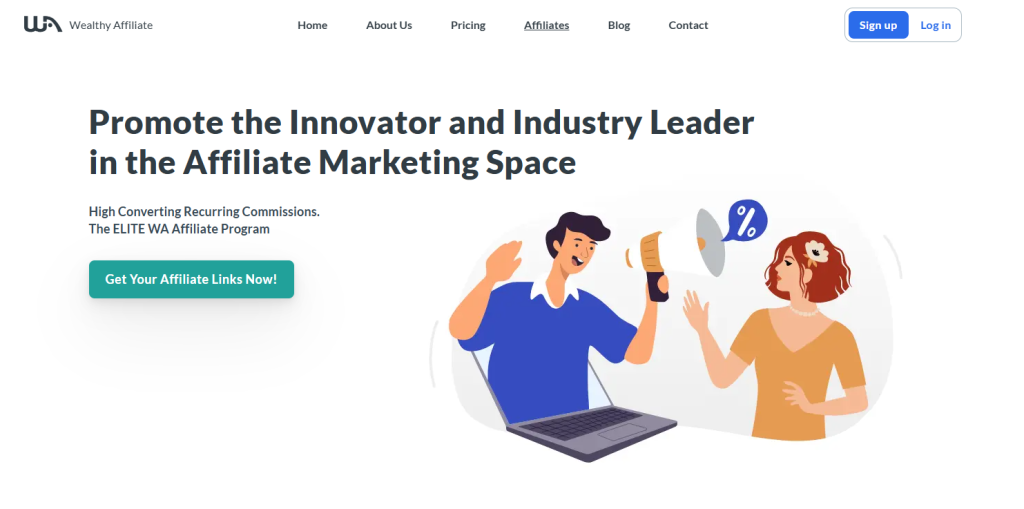
- Emphasis on Promoting WA (for Affiliate Bootcamp): One subtle critique is that WA’s Affiliate Bootcamp (one of its main training tracks) trains you to promote Wealthy Affiliate itself. This has led to an ecosystem where many WA members create “WA review” websites and recruit more members (because WA pays commissions for referrals). While there’s nothing inherently wrong with that – and many have earned income doing so – it can create an echo chamber. Some external observers argue that most of WA’s success stories are people who made money by selling WA to others, rather than in other niches.
That’s not entirely true (there are plenty of niche successes as noted above), but it is fair to say a large chunk of the community is focused on the “make money online” niche. If you join WA wanting to do, say, a recipe blog, you might feel a bit out of place when many peers talk about promoting WA. Regardless, you can absolutely use WA for any niche – just be ready to self-direct and not get lured by the Bootcamp unless that niche interests you.
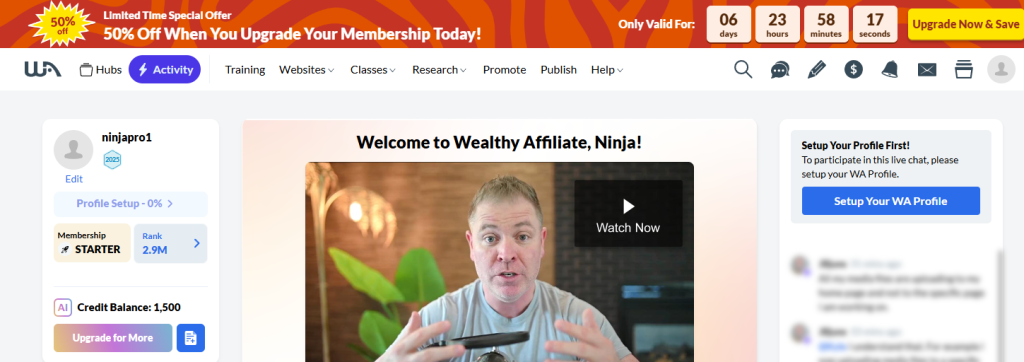
- Upsells to Premium Plus / Other Services: WA doesn’t have high-ticket upsells, but in recent years they introduced Premium Plus+ ($99/mo), which adds more content and tools. Some have felt that WA’s push towards this higher tier (with more and more “exclusive classes” for Plus members) is a form of upselling that pressures members to pay more for the “full experience.”
Additionally, WA has some ancillary services like purchasing your own domains or advanced tools that cost extra (though these are optional). Compared to ABH or LM, this is mild, but it’s worth noting you might eventually be enticed to upgrade for more perks. Also, WA’s affiliate program encourages members to refer others – which could distract from focusing on non-WA niches if one isn’t careful.
- No Done-For-You Aspect: Unlike ABH (which gives you funnels and emails pre-made), WA is all about teaching you to fish rather than handing you the fish. This is a pro in the sense of skill development, but a con if you prefer shortcuts. There are no ready-made websites or content; you must create everything. For some beginners, especially those less confident in writing or tech, this DIY nature is daunting. You have to work hard producing content for potentially months before seeing payoff, which can be a grind.
In essence, Wealthy Affiliate’s cons center on the time/effort required and some scope limitations in training. It’s fantastic for learning and community, but not for quick results or advanced marketers.
✅ Legendary Marketer – Pros
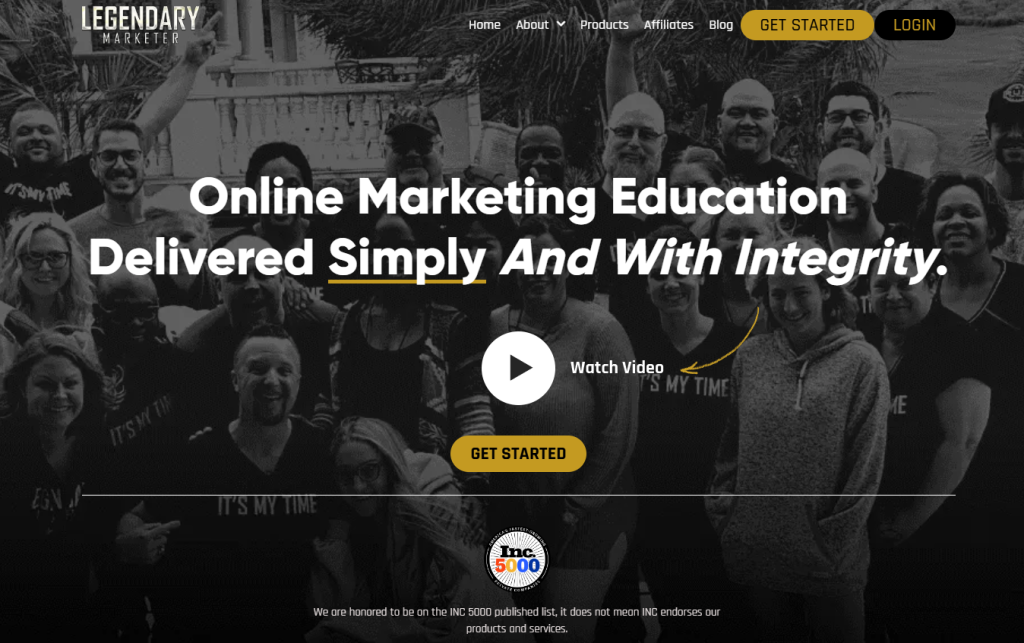
- High-Quality, Up-to-Date Training: Legendary Marketer (LM) provides very polished training programs. Dave Sharpe and his team ensure that the video lessons are professional and engaging. The content covers the core principles of online marketing in a way that’s digestible for beginners.
A big advantage is that LM doesn’t teach just one method (like only blogging or only YouTube); instead, it focuses on the fundamental skills (like finding a niche, creating funnels, driving traffic via various methods) that can apply across many online business models. This gives students a versatile knowledge base. Many students appreciate that LM’s material is straight to the point and easy to follow, without tons of fluff, yet still comprehensive for someone new to the field.
- Excellent Entry-Level Value: One of Legendary’s best pros is its low-cost entry products that deliver big value. The 15-Day Business Builder Challenge for $7 is often praised as being worth far more than the price – it includes daily lessons, tasks, and even a one-on-one business plan consultation call. Likewise, their Insider’s Guide to Affiliate Marketing eBook ($1.99) is full of actionable tips.
This means anyone can afford to learn the basics of high-ticket affiliate marketing without breaking the bank. In fact, an independent reviewer noted being surprised that the inexpensive products were “stupidly cheap and full of tons of hacks” that actually provide real insight.
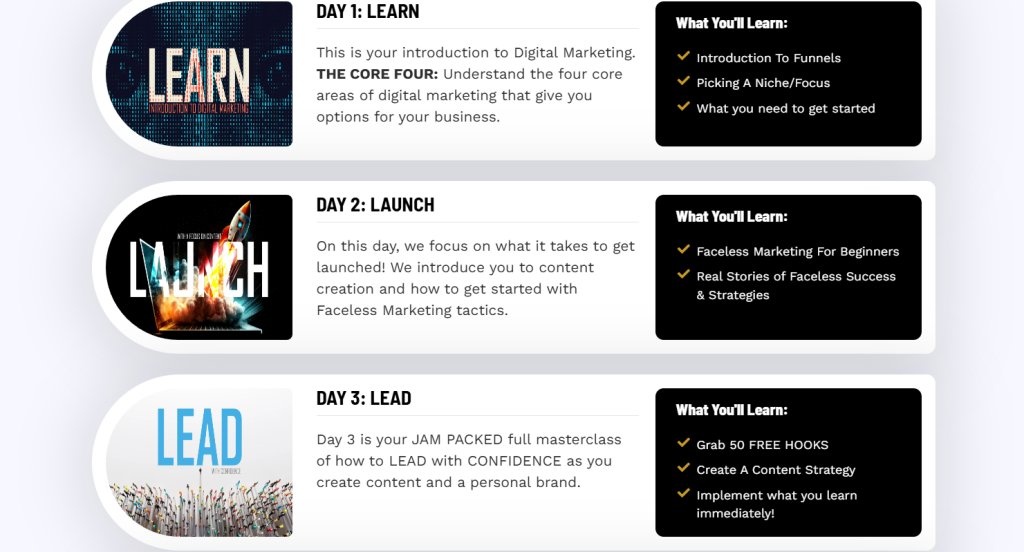
This is great for beginners – you get a taste of quality training for the price of a coffee. Even the ongoing Marketer’s Club at $30/month is considered well worth it by many, as it grants new live training every week from six- and seven-figure experts.
- Focus on High-Ticket = Big Earning Potential: LM teaches you not to settle for $5 commissions; it encourages a mindset of selling high-value products that can net $500, $1,000, even $2,000 commissions in one sale. For those who embrace the LM affiliate program, this has proven lucrative – LM’s own tiered commission structure (with 50%+ commissions for pro affiliates) means if you refer someone who buys a $2,500 Blueprint, you might earn $1,000+ from that one customer.
There are numerous affiliates who have made tens of thousands with relatively few sales thanks to this high-ticket approach. Even if you don’t promote LM, the training on selling high-ticket products and using funnels can be applied to other niches (e.g., promoting a high-ticket coaching program or an expensive software). This approach can potentially lead to faster, larger earnings than grinding out small Amazon affiliate sales, for example. In short, LM helps you “think big” in terms of revenue per customer.
- Community and Networking Opportunities: Legendary Marketer has a strong community vibe, particularly through its private Facebook group and live events. Members often network and form partnerships. Dave Sharpe’s team fosters a supportive environment – their daily live “Wake Up Legendary” sessions spotlight member successes and tips, which creates inspiration and camaraderie.
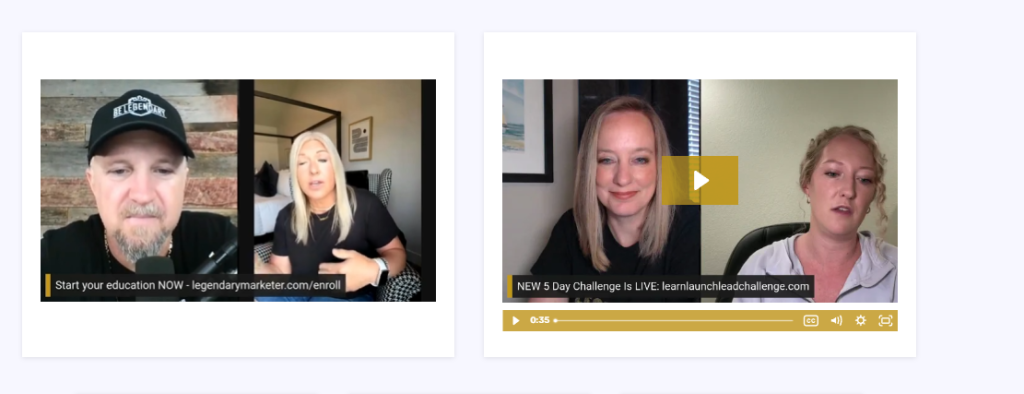
Additionally, LM organizes virtual and in-person events (like masterminds) for those in the higher-tier programs. Being part of LM can thus plug you into a network of ambitious entrepreneurs. For many, these connections are invaluable – you might find a mentor or accountability partner among the group. And the one-on-one business advisor calls during the Challenge help personalize the experience; you get specific advice for your goals, which is a nice touch not offered by most programs.
- Broad Skill Development: LM isn’t just about affiliate marketing; its curriculum touches on copywriting, personal branding, social media marketing, paid advertising, sales funnels, and even mindset. In the 15-day challenge itself, you learn how to craft a business plan, how to create a landing page, basics of email marketing, etc.
Then the Business Blueprints delve deep into specific areas (like a full course on building and selling your own digital products, which essentially teaches you how to become a product vendor). So LM can actually prepare someone for various online ventures – whether you choose affiliate marketing or maybe creating your own course down the road. It’s fairly well-rounded education for digital business.
⚠️ Legendary Marketer – Cons

- Aggressive Upsells (High Total Cost): The most common criticism of Legendary Marketer is the steep upsell ladder. While $7 entry is great, many newbies feel significant pressure to invest in the higher-end products once inside. The business advisors (who call you) will often encourage you to consider the $2,500 Blueprints, framing them as the “true path” to success.
Some users feel these sales tactics are too pushy. And frankly, not everyone can afford $2,500 for a course – let alone potentially $5,000+ for all of them. This can create a sort of “pay to play” feeling – that the really good stuff is locked behind big paywalls. In the past, LM also charged $30/month to be a “Pro” affiliate (to earn full commissions), though as of 2022 they removed that fee. Still, to many outside observers, Legendary Marketer resembles a funnel itself – drawing you in cheap, then upselling a lot.
If someone only has $7 and never buys more, they’ll get value, yes, but they’ll also be continuously marketed to. In short, the ecosystem favors those who can invest – which can be alienating or overwhelming for those who can’t or won’t spend thousands. (It’s worth noting that all content is legit; it’s not scammy, but the cost accumulation is an issue for some.)
- Less Emphasis on Free Traffic/SEO: Legendary Marketer’s training, especially in the core challenge and affiliate marketing blueprint, tends to focus on paid traffic methods (like FB ads, YouTube ads) and social media marketing. It does not heavily cover SEO blogging or other organic tactics. In fact, one con mentioned by a reviewer was that “the courses do not tackle organic marketing tactics like SEO”.
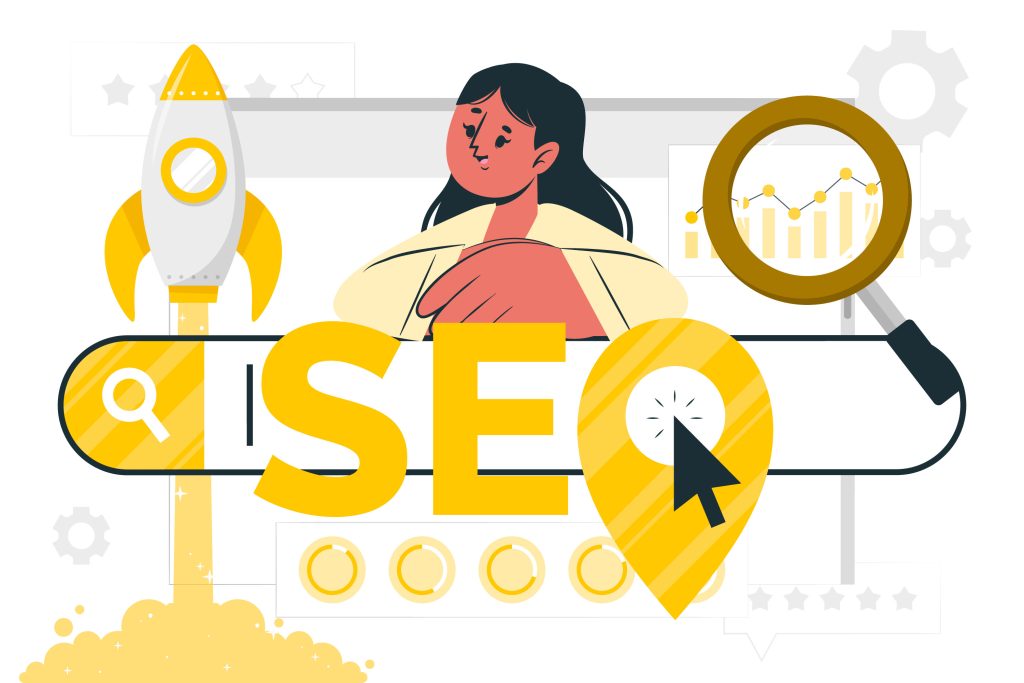
This means if you’re looking to learn how to build a blog to get free Google traffic (the way WA teaches), LM won’t teach much of that. The assumption is often that you will leverage paid advertising to drive people into funnels (which is a faster method, but requires ad budget). If you prefer low-cost organic methods, LM might feel lacking in that department. However, LM does have training on TikTok, Facebook, etc., which are free social platforms – but again, more on creating viral content or short videos rather than long-form SEO content.
- Many Success Stories Tied to Promoting LM: Similar to WA’s Bootcamp situation, a lot of the big earnings you hear about within Legendary Marketer are from people who became affiliates of LM and promoted the program itself. Essentially, LM taught them how to market, and they applied those skills by selling LM to others, earning high commissions. While this does prove the system works, skeptics might say “are people succeeding outside of selling this same program?”.
To be fair, plenty of LM students have applied the training to other niches successfully (for example, using the digital products blueprint to launch their own courses, or using the skills to excel in affiliate offers in finance or health niches). But the most publicized wins (like those who made $100k+ and are interviewed on LM’s webinars) often have a vested interest (they made that money via LM’s affiliate plan).
We avoid calling it MLM or a pyramid (it isn’t one, since products have real value), but it’s a valid observation that LM’s community is largely focused on promoting LM. If your intention is to just promote unrelated offers and never touch LM’s program as an affiliate, you might not resonate as much with the community’s focus.

- Country Restrictions: Legendary Marketer is not available in certain countries (over 100 countries were reportedly blocked), mainly due to high fraud rates or regulatory issues. This means if you live in certain regions (many African, Asian countries, etc.), you might not even be able to join. WA and ABH, on the other hand, are open worldwide. This con may not affect most Western users, but it’s notable for international folks.
- Requires Self-Motivation to Implement: LM gives great training, but aside from the initial 15-day structured challenge, once you buy a Blueprint course, you’re on your own to complete and implement it. There isn’t a step-by-step “build your business in X days” hand-holding like ABH has. Some buyers of expensive courses never finish them (common in the industry).
Without the discipline to follow through, one could spend a lot and not get results – which can lead to feeling jaded. While this isn’t LM’s “fault” per se (the user must put in work), it’s worth noting that LM doesn’t guarantee any done-for-you outcome. It equips you with knowledge and some tools (funnels for promoting LM), but you still must execute consistently. In contrast, ABH forces you to implement as you learn, which can yield more tangible progress for some.
In summary, Legendary Marketer is a high-quality option but best suited for those who have some budget to invest in their education and are interested in high-ticket affiliate marketing (often including promoting LM itself). Its cons are mostly about cost and focus areas.
✅ ClickBank “Spark” – Pros
- Official Credibility: Spark (the successor to ClickBank University) is the official course by ClickBank – one of the largest and oldest affiliate marketplaces online. This lends a lot of credibility; you’re learning from the source. The training content is put together by ClickBank’s team and veteran affiliates, so it’s trustworthy and not a random guru’s program. For someone who specifically wants to succeed on ClickBank, it makes sense to learn from ClickBank itself. This also means the content stays fairly up-to-date with how ClickBank’s platform works and any new features (like Spark will teach how to use the latest ClickBank interface, rules, etc., which third-party courses might not cover in detail).
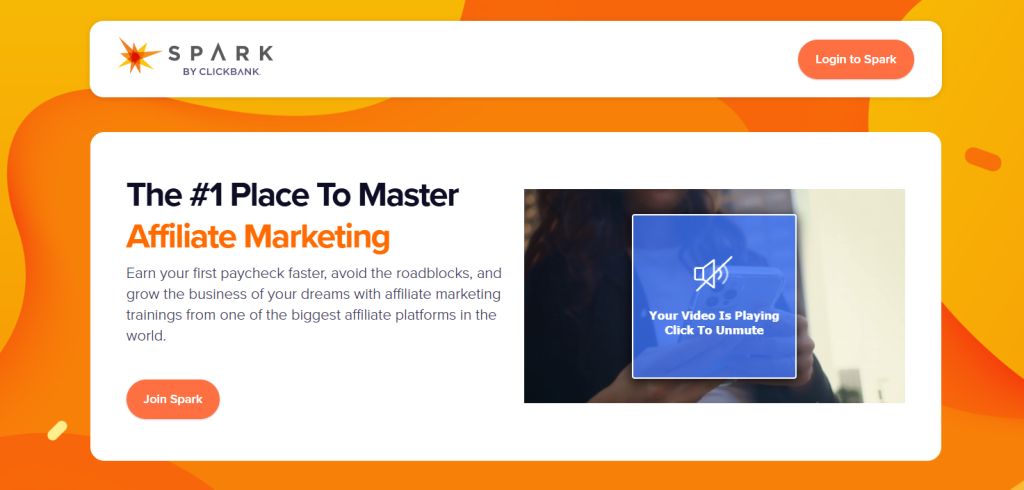
- Affordable Monthly Membership: At $39/month (with option to cancel anytime), Spark is reasonably affordable and doesn’t lock you into a huge payment. You could subscribe for a couple of months, consume all the training, and then cancel if you feel done. This is more flexible than a one-time large fee. Also, because it’s subscription-based, the creators have an incentive to keep adding value to retain members (e.g., adding new courses or resources periodically). ClickBank often offers promotions or a free trial course, which lowers the barrier further. So as a beginner, you can start learning with minimal commitment.
- Beginner-Oriented, Easy to Follow: Spark’s content is known to be very beginner-friendly, often covering step-by-step how to perform basic tasks like picking a product, creating a hoplink, setting up a simple Facebook ad, etc. It doesn’t assume prior knowledge. If you find something like WA overwhelming or LM too fast-paced, Spark might feel more manageable. It also covers a broad range of introductory topics (the Foundations), which give a newbie a good overview of various facets of online marketing, after which they can decide where to focus. Some courses within Spark also address creating your own product – so you get a dual perspective (affiliate and vendor), which is unique.
- Community and Office Hours: Spark includes access to a community forum of other students, and ClickBank has offered things like weekly office hours webinars where instructors answer questions. This support can help clarify doubts. While the community is smaller than WA’s, it’s still helpful for a newbie to interact with others learning the same material. There’s also a direct support channel for Spark members through ClickBank’s customer service, which is generally responsive since it’s a reputable company.
- Focus on a Proven Platform (ClickBank): By centering around ClickBank, the training ensures you are working within a proven ecosystem. ClickBank has thousands of products and has paid out billions in commissions over decades. Spark teaches you how to pick winning offers on ClickBank, which is valuable because offer selection is crucial – a great skill to have. It also introduces beginners to the concept of digital products (which often have higher commissions ~50-75% vs physical products).

So a Spark student will immediately be in the realm of promoting high-gravity, potentially high-converting offers rather than, say, signing up for Amazon Associates where commissions are low. This focus can accelerate a newbie’s first commission (digital products + an existing marketplace = you skip needing to find affiliate programs elsewhere).
⚠️ ClickBank “Spark” – Cons
- Generic and Lacks Depth: A common critique of Spark (and previously ClickBank University) is that the training remains surface-level. It covers many topics (from choosing a niche to basic copywriting to basic paid ads), but doesn’t go deep enough into any one strategy. It’s been described as “too generic and lacks any real depth”.
For example, it might tell you what affiliate marketing is and the steps to do it, but not detailed tactical nuances to truly excel (the kind of advanced tricks you’d learn in LM or from experienced affiliate coaches). So, after finishing Spark, many users feel they need to seek further education or mentorship to really start making substantial money. It’s a good starting point, but not a one-stop path to expert level.
- No Hands-On Building or Done-For-You Elements: Spark is a course library – it doesn’t walk you through building an actual business asset in real-time. There’s no website builder included (though it may show how to set one up), no pre-made funnels, no software tools bundled.
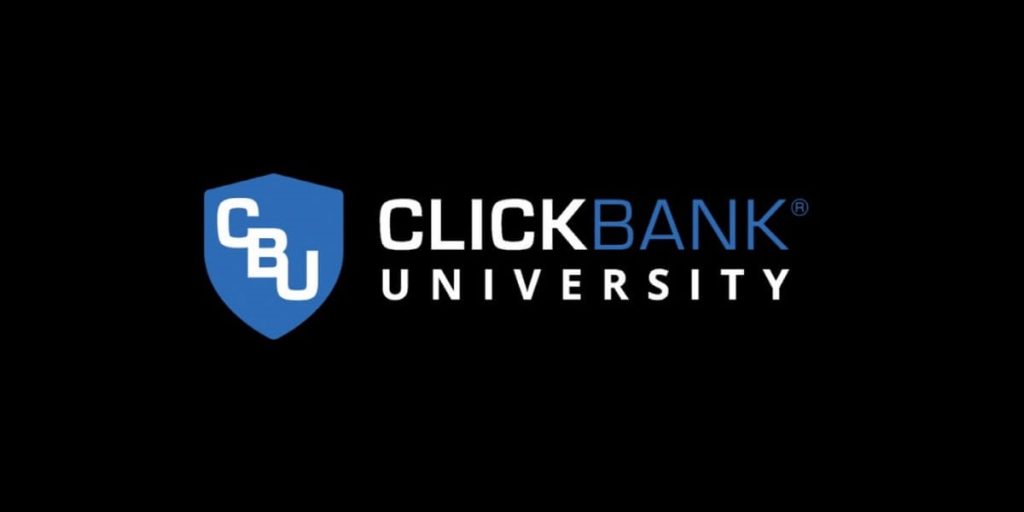
In ClickBank University 2.0, they had a funnel builder upsell called ClickBank Builder, but Spark doesn’t include that. So after learning, you’re on your own to pick tools and implement. This can be a hurdle for less technical folks who, after watching the videos, might still not know how to connect all the pieces practically. In essence, it can leave you with knowledge but no tangible output unless you take initiative to apply it step by step on your own.
- Focused on ClickBank Only: While ClickBank has a lot of offers, it’s not the entire affiliate world. Spark’s guidance is very much tailored to ClickBank’s marketplace. It might not cover other affiliate networks (CJ, ShareASale, etc.) or other models like CPA marketing. If a certain niche or product you want to promote isn’t on ClickBank, Spark won’t talk about it. Moreover, some strategies like SEO blogging aren’t emphasized heavily (CBU used to focus more on paid traffic and funnel methods to promote CB offers). If you later decide affiliate marketing outside of ClickBank, you may need supplemental training.
Mixed Reviews on Effectiveness: Because Spark is relatively new (launched around 2021) and replaced an older program (CBU) that had mixed feedback, it’s still proving itself. Some users and reviewers felt that the old ClickBank University overpromised and underdelivered, and Spark is only a slight improvement.
There aren’t as many public success stories from Spark graduates compared to WA or LM communities. It may be simply that Spark isn’t as community-driven or doesn’t publicize them, but the perception among seasoned marketers is that Spark is okay for basics but has a low “graduate success” rate (partly because many who go through it move on to other advanced programs).
- Monthly Cost Over Time: While $39/month is affordable short-term, over a year it’s ~$468, which actually is on par with Wealthy Affiliate’s annual price or buying ABH. If one stays subscribed for long without making progress, it could end up costing more than some one-time fee courses. There’s also a possibility of needing to subscribe to additional tools/services while following Spark (e.g., paying for an autoresponder service, ad budget, etc.), which can add to costs – though that’s true for any serious attempt, not just Spark.
In essence, Spark by ClickBank is a solid introductory platform but not as robust or fast-track as ABH, not as community-rich as WA, nor as intensive as LM. It’s best for those who want a gentle introduction specifically aligned with ClickBank. Many ambitious affiliate students treat Spark as a starting point before “graduating” to more extensive programs like the others.
User Feedback and Success Stories
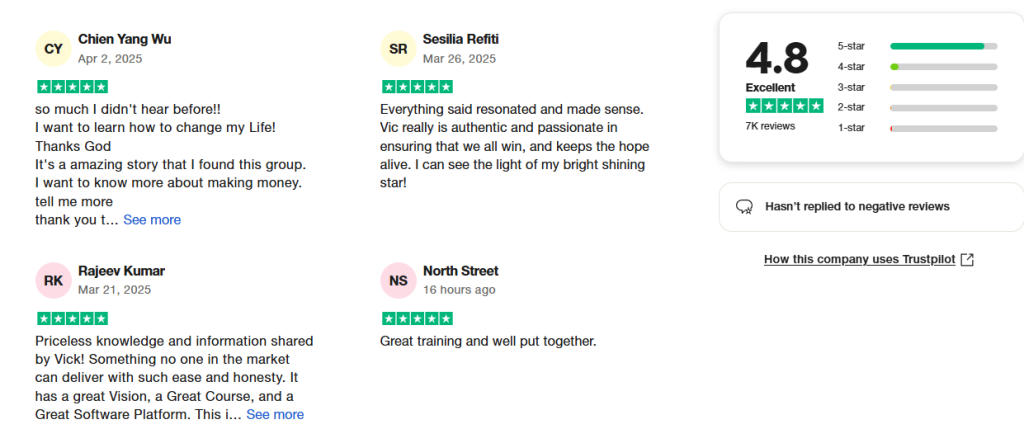
One of the best ways to evaluate these platforms is to look at real user feedback and success stories. Let’s highlight some public testimonials and outcomes for each program, as well as user ratings, to get a sense of how actual members have fared.
Affiliate Business Hub (ABH) – Success Stories: ABH is relatively new compared to WA or LM, but it has already gathered an impressive fanbase and reviews. As noted, on Trustpilot ABH (as part of Four Percent) has over 22,000 five-star reviews – an almost unheard-of volume in this space. Many of these reviewers praise the system for delivering results and value beyond expectations. Common themes in ABH testimonials include people achieving first-time online income and building confidence. For example:
- Sarah K. (testimonial on a review site): “I made my first sale in just 3 days!” – This shows ABH’s quick-start approach can yield immediate wins.
- Mike T.: “ABS changed my life. I quit my job and now work from home!” – Indicates that some members have scaled their earnings to full-time levels.
- Lisa R.: “I never thought I could make money online, but ABS made it happen!” – Highlights how ABH instills belief and provides a breakthrough for people who struggled before.
These could be cherry-picked positive stories (we should always take marketing testimonials with a grain of salt), but the sheer number of positive reviews out there suggests ABH has genuinely helped a lot of ordinary folks get into the affiliate game successfully. The supportive community is often credited in reviews – people feel they have a “family” cheering them on.
On Trustpilot, the average rating for Vick’s Affiliate Business System is around 4.9 out of 5.0 (virtually perfect) according to various sources
This is echoed by internal surveys where ABH users report high satisfaction with the training quality and results. “Consistent results and long-term success” are phrases that come up in user stories, implying ABH is delivering on its promise of a sustainable business, not just a flash in the pan
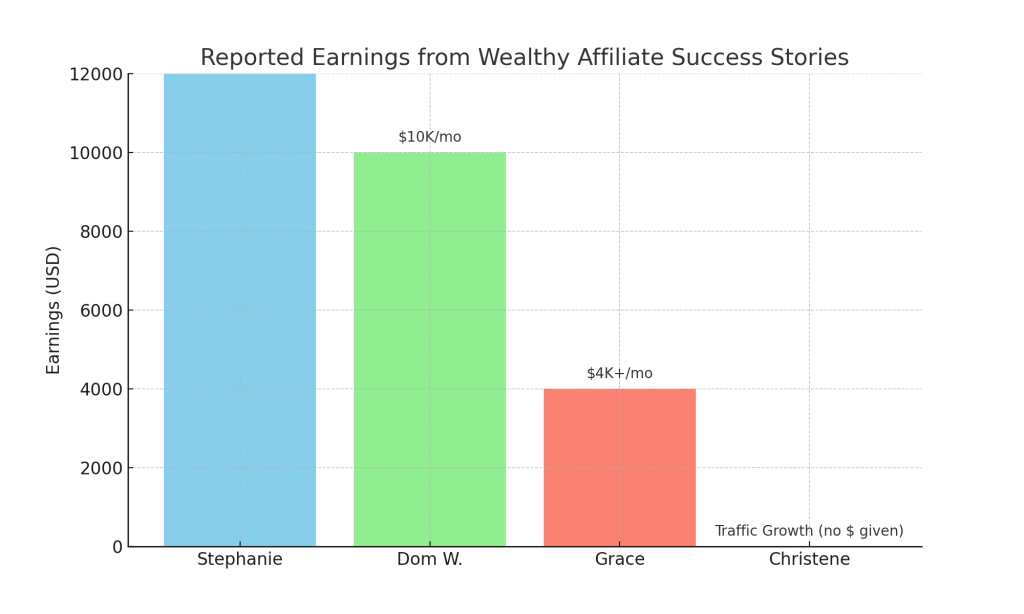
Wealthy Affiliate – Success Stories: WA has a long history, so plenty of success (and failure) stories exist. On the positive side, WA’s own site has countless blog posts from members celebrating milestones – their “first $1,000 month”, “got 100,000 visitors”, “made my first sale after X months”, etc. A few notable examples:
- Stephanie: Joined WA in 2017, built a niche site about women’s hair loss. After ~13 months and ~60 blog posts, she managed to sell her site for $28,000. That’s a substantial one-time payout for a first project, showcasing how building a content site can create a sellable asset.
- Christene: An experienced marketer who joined WA in 2013 to test it. She used the platform to refine her skills and help others. As a result, her websites gained more traffic and sales, even though she was already successful before – indicating WA provided value even to a non-newbie.
- Dom W.: A well-known WA member (started 2012) who built multiple niche sites following WA training. He reported growing from zero to over $10,000 per month by his third year. He eventually founded an entire business (HumanProofDesigns) that scaled to high 6-figures, all rooted in the skills he honed via WA.
- Grace (Littlemama): A blogger who joined WA in 2016, documented her journey publicly. By 2018, she was earning over $4,000/mo from her niche sites and WA referrals, and by 2019 crossed five figures per month, becoming one of WA’s top success stories (often cited in WA’s own marketing).
- Recent Trustpilot reviews (composite): Many WA users on Trustpilot praise the community and training, with comments like “WA gave me the knowledge to build my blog from scratch and now I earn a steady side income” or “After a year of following the training, I made my first $500 sale”. WA’s Trustpilot rating is also around 4.8 to 4.9 out of 5 with over a thousand reviews, reflecting high satisfaction.
However, it’s also fair to note some negative stories: on Reddit and other forums, you can find people who say “I spent X months on WA and didn’t make anything”
Often the difference is those who succeed put in consistent effort and treat it like a real business, whereas those who fail either gave up too soon or didn’t fully apply the training. WA is not a guarantee of success – it provides the tools and knowledge, but the execution is on the user. The most common user feedback is: great community, solid training for beginners, but you must be patient and do a lot of writing work.
Legendary Marketer – Success Stories: Legendary Marketer tends to showcase success in terms of high earnings, especially through their affiliate program. A few examples:
- Erick Ellis: A Legendary Marketer student turned affiliate, who reportedly earned over $100,000 in commissions promoting LM in his first year, and has been featured on LM’s YouTube channel and interviews talking about his journey from a struggling personal trainer to an online entrepreneur.
- Sarah Thompson: A single mom who used LM training to start a freelance digital marketing business; within a few months, she replaced her full-time income and gave credit to LM’s skills training for her transformation (featured in LM’s marketing materials).
- Andre (Medium blogger): In the Medium article we saw, Andre achieved his first high-ticket $1,000 commission by promoting Legendary Marketer’s Blueprint course. He also noted that a few people reached $1M (Diamond rank) and many reached $100k (Platinum) in commissions through the program – indicating a number of affiliates have seen life-changing income.
- Legendary Marketer’s official Trustpilot rating is ~4.6/5 with hundreds of reviews. Many reviews applaud the quality of training and the supportive community. Some sample user feedback: “Legendary Marketer opened my eyes to how online business really works – I made my first $1,000 sale thanks to their methods”, “A lot of upsells, but honestly the value is there. I learned more here than in 4 years of college”. On the flip side, a few Trustpilot reviewers mention not liking the upsell pressure or not seeing results fast enough with the challenge alone.
Legendary Marketer also has a Facebook group where members frequently post wins, like “I got my first commission” or even screenshots of thousands of dollars earned in a day. These are often affiliates of LM; still, it shows people are able to generate significant revenue by applying the training.
LM’s team often interviews its successful students live – for example, they’ve highlighted people who have taken the training and then gone on to build six-figure agencies or coaching businesses (not just affiliate). So, the success stories are not confined to just promoting LM, though those are the easiest to find because they’re within the community.

One should keep in mind, LM’s big successes often involve significant ad spend or effort as well – e.g., someone might have spent $10k on ads to make $20k in commissions, etc. But ROI can be high if done right. The key takeaway from user feedback is: those who invest in the higher training and work hard often love LM and achieve great results; those who only do the $7 challenge and stop might feel it was too basic or that they’re left needing more.
ClickBank’s Spark – Success Stories: Spark is relatively new and doesn’t have as many public “raving fans” or success stories circulating yet. ClickBank University (its predecessor) had some testimonials of people who launched products on ClickBank after taking the course, or affiliates who made their first sales. For instance:
- Alice: A CBU student who created her own digital product (a cooking guide) and got it listed on ClickBank, making a few thousand dollars in sales within a couple of months – often mentioned in older CBU promo materials as a success.
- John: An affiliate who followed ClickBank training to drive Facebook Ads to a ClickBank offer, earning his first $200 commission and scaling to a few hundred per week.
Since Spark’s launch, ClickBank’s blog or promotions might have highlighted a few individuals, but these stories aren’t as widely shared. TheDoubleThink review suggests that Spark hasn’t produced notable results for a lot of people, which could imply many beginners either drop off or move on before hitting big milestones
Spark likely has an internal forum where newbies celebrate first wins (like “made my first sale!”). Given ClickBank’s nature, it’s probable that some Spark users have at least managed to get their first affiliate campaigns profitable using the training. But for large-scale success, they might need to combine Spark with other knowledge.
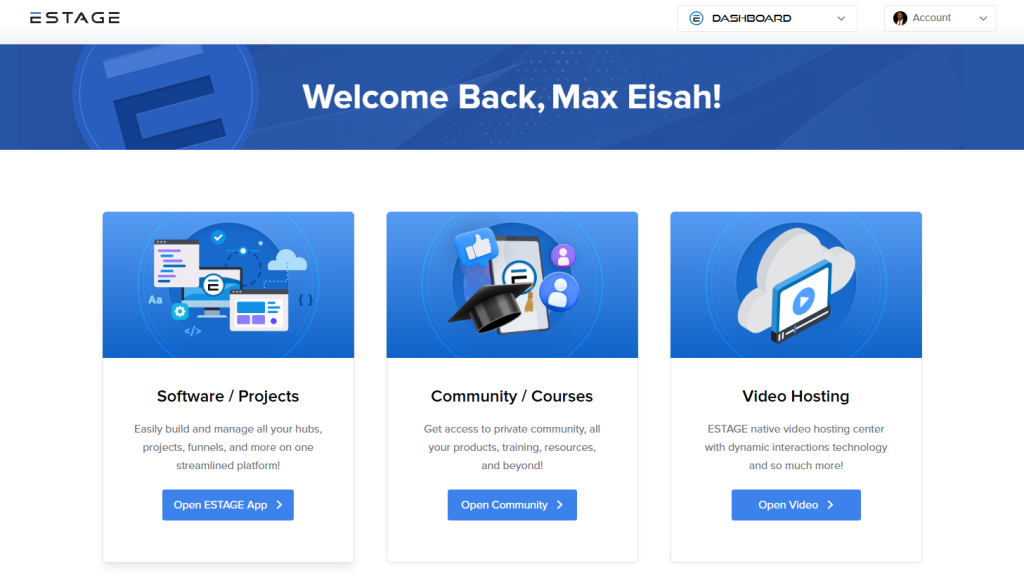
In terms of ratings, Spark/CBU wasn’t specifically tracked on Trustpilot under its own name much. ClickBank as a platform has reviews (though those are more about the marketplace, not the course). The general sentiment on Spark in communities is lukewarm – considered a good starting point but not something that by itself creates huge success stories often.
Visualizing User Ratings: All these platforms boast strong user ratings in their marketing, especially ABH, WA, and LM. To summarize the average user sentiment:
Chart: Average User Ratings on Trustpilot for ABH, Wealthy Affiliate, and Legendary Marketer. Both ABH and Wealthy Affiliate maintain nearly perfect user ratings around 4.9 out of 5 (indicating excellent user satisfaction). Legendary Marketer is not far behind with roughly 4.1 out of 5
still a very high approval score. These ratings underscore that all three programs have helped a lot of people (though the methodologies differ). ClickBank’s Spark isn’t shown due to limited data, but its reception is generally positive-but-moderate (perhaps around 3–4 out of 5 in various reviews).
It’s important to note that high ratings can sometimes be influenced by companies encouraging reviews at positive moments (for instance, both WA and Four Percent have been noted to solicit reviews from new users early on
However, the consistency of good feedback alongside the success stories suggests genuine value is being delivered.
🧱 What Is eStage and How Does It Power Your Affiliate Hub?

When you join the Affiliate Business Hub (ABH), one of the first tools you’ll encounter is eStage—the website builder that acts as the foundation of your affiliate business. Think of it as your digital home base: a professionally designed website that’s already optimized for affiliate marketing, ready for you to personalize and launch.
But eStage isn’t just a typical site builder—it’s designed specifically for affiliate-focused entrepreneurs. Instead of starting from scratch, you get a fully pre-built hub (with homepage, blog, webinar pages, product offers, and even reviews), all strategically laid out to help turn visitors into subscribers and commissions.
✨ What You Get with Your eStage Hub:
- A customizable homepage with built-in messaging designed to build trust.
- A blog section where you can publish reviews and educational content—with affiliate offers automatically placed inside.
- A webinar page loaded with ready-to-promote presentations tied to high-ticket affiliate offers.
- A course/training page for collecting leads in exchange for value-packed content.
- A resource/tools page to showcase your favorite products (and earn commissions).
- A reviews/testimonials page featuring real, verified social proof from other users.
Every section is designed with conversions in mind, meaning you don’t just get a good-looking website—you get one that’s built to help you earn.
Whether you’re brand new or transitioning from a patchwork setup, eStage simplifies everything by giving you one professional, optimized, and cohesive hub to work from.
🎥 eStage Video Hosting: A Smarter Way to Share Your Content

Inside your ABH dashboard, you’ll also find eStage Video Hosting—a built-in video hosting tool that lets you upload and stream your marketing videos directly on your website, without relying on platforms like YouTube or Vimeo.
Why is that a big deal? Because when it comes to affiliate marketing, your video content should keep people on your site—not distracted by ads or recommended videos that lead them elsewhere.
🔍 How eStage Video Hosting Works for You:
- Ad-free video playback so your message stays front and center.
- Fast load speeds thanks to smart video optimization for all devices.
- On-brand customization, letting you match the video player to your site’s look.
- Gated access options so you can protect exclusive content (like subscriber-only videos or bonus trainings).
- Built-in analytics & call-to-action overlays, giving you insight into views and letting you drive conversions mid-video.
Whether you're embedding a product demo, a welcome video, or a bonus offer, eStage Video Hosting ensures your content plays cleanly and professionally—with full control over the viewer experience.
The best part? Just like the rest of the ABH platform, it’s seamlessly integrated. That means no more juggling third-party video tools or worrying about how to embed a clip into your funnel. It’s all in one place—and built with affiliate marketers in mind.
Conclusion: Why ABH Stands Out
After comparing Affiliate Business Hub (ABH) to Wealthy Affiliate, Legendary Marketer, and ClickBank’s Spark, it’s clear that all platforms have value—but ABH offers the most complete, beginner-friendly, and results-driven experience.
- Wealthy Affiliate is great for those who enjoy writing, want to build SEO-based sites, and don’t mind a slower path to results.
- Legendary Marketer is ideal if you're ready to invest in high-ticket skills and want to promote high-value offers.
- Spark by ClickBank provides an affordable starting point but is more basic and self-directed.
ABH combines the strengths of all three—hands-on training, done-for-you funnels, tools, and mentorship—without the need for juggling third-party tools or waiting months to launch. You literally build your affiliate business as you learn, with Vick Strizheus guiding you step-by-step.
At $497 one-time, ABH includes what would otherwise cost thousands: website hosting, funnel builder, autoresponder integration, and expert coaching. And thanks to its built-in affiliate program, many users recoup their investment quickly.
What makes ABH truly different is its focus on fast results. While other platforms focus on theory or passive learning, ABH is about launching, earning, and scaling—starting from week one. It’s designed to get you profitable faster while also building a real digital asset that you own.
For beginners who want an all-in-one system, clear guidance, and a path to real income without being overwhelmed, Affiliate Business Hub is the smartest choice. It’s more than just a course—it’s your business, ready to launch.

